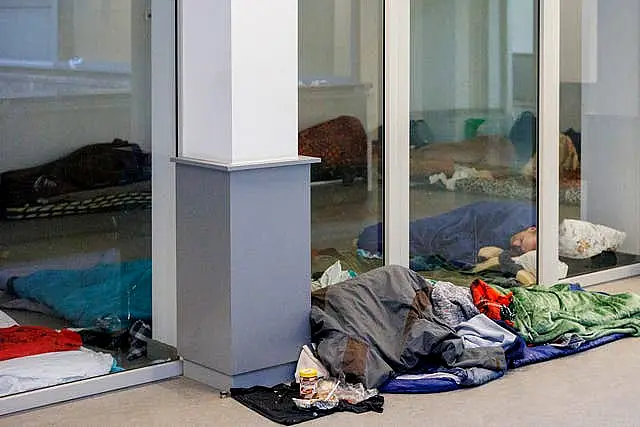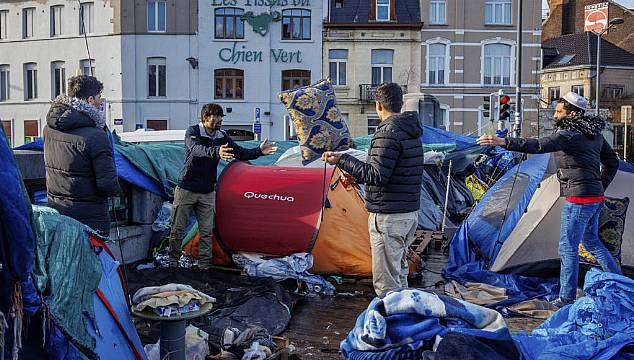The Belgian government has said it will no longer provide shelter for single men seeking asylum, saying its insufficient reception capacity should prioritise families, women and children.
Europe’s foremost human rights organisation and aid groups condemned the move as reneging on international commitments.
Belgium has long been criticised for failing to provide enough shelter for the thousands of people seeking asylum.
Long lines of tents along streets outside the main processing centre in Brussels have become a stain on Belgium’s reputation.

On Wednesday, asylum secretary Nicole de Moor said increasing pressure on asylum housing was expected over the coming months and she wanted “absolutely to avoid children ending up in the streets this winter”.
Instead, single men will have to fend for themselves.
According to the EU Agency for Asylum, male applicants last year accounted for 71 per cent of asylum claims.
Belgium’s move was criticised by human rights organisations, with the 46-nation Council of Europe taking the lead.
The CoE’s human rights commissioner Dunja Mijatovic, said that “the lack of accommodation has serious consequences for the human rights of people applying for asylum in Belgium, including from the perspective of their right to health”.
Last December she urged Belgian authorities to provide better assistance to asylum-seekers after hundreds of people slept on Brussels’ streets in freezing temperatures, scenes that went on through much of the winter.
“I reiterate my call to the authorities to implement swift measures and durable solutions to address structural shortcomings in the asylum system in Belgium and ensure that accommodation is available for all those seeking international protection, including single men,” she said.
Others were more scathing.
“We thought we’d seen it all, but no. The Belgian government isn’t just sitting on human rights, it’s burying them by ‘suspending’ the reception of single male asylum-seekers,” said Philippe Hensmans, director of Amnesty International Belgium.
Mr De Moor said the influx of asylum-seekers over the past two years in the country of 11.5 million had filled shelters almost to their capacity of 33,500.
Last year Belgium had nearly 37,000 applications for protection, the federal agency Fedasil said.
On top of the asylum-seekers, Belgium is also giving help to some 62,000 Ukrainian refugees who fled Russia’s war.
Last year alone, labour courts convicted Fedasil more than 5,000 times for failing to provide proper shelter.
Still, said Mr de Moor, “our country has already done more than its share for a long time”, and she called on some other EU countries to increase their effort instead.







